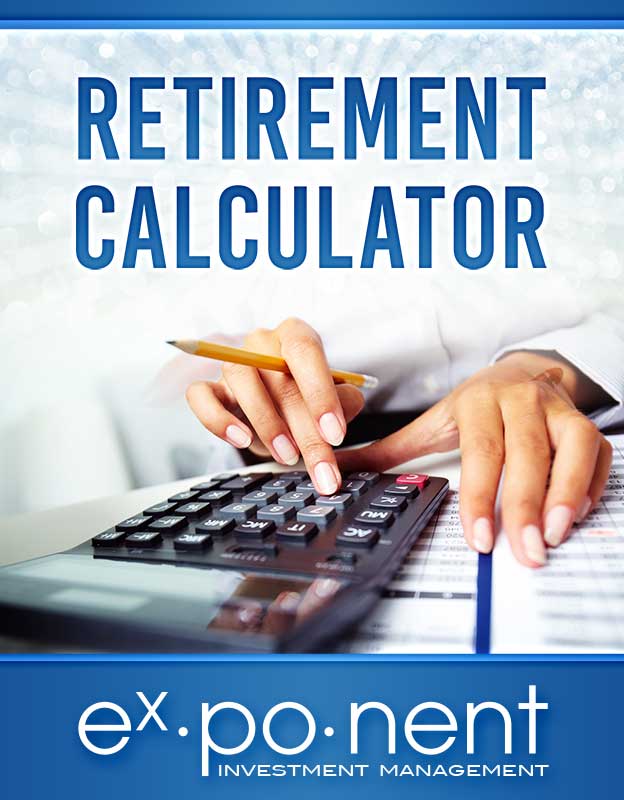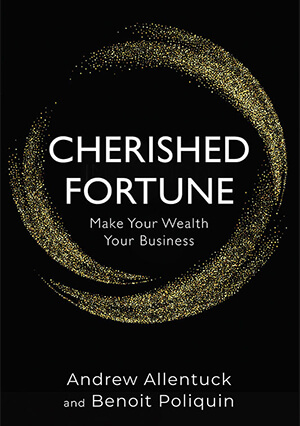When it comes to investing, there are many choices out there and sometimes it can be confusing and overwhelming. Do you work with an advisor or do it yourself? What kind of advisors are out there and how do you decide who to work with? What products and solutions are available? This article is designed to help walk you through those choices and provide clarity to what is available.
The first step is determining whether or not you want to hire a professional or do it yourself. A trendy topic right now is the use of ‘robo-advisors’. With a robo-advisor, you have no relationship with a person; instead decisions are driven by algorithms and computer programs. If you have questions you call a 1-800 number and get connected to a call center. There is no ongoing service with one consistent individual who knows your situation personally. As a result, fees can be lower than working with an advisor. One caveat I would point out with robo-advisors is that they haven’t been tested in prolonged down markets. The markets aren’t always rational, there is value to having a human point this out and provide advice that could come in the form of ‘staying the course’. You don’t want a computer program kicking in and selling you out in a free-falling market; if your time horizon is long, don’t sell into a crashing market, hold the course and wait for the recovery.
Another option is opening an account directly at a discount brokerage and trading for yourself without any assistance whatsoever. At first blush, it sounds like there are cost savings to be had by going online and investing without the help of an advisor. Indeed, commissions and fees are lower by going this route. However, before going this way there are a few things to consider.
Ask yourself this – what is your time worth? And what is the cost of making mistakes? As simple as it can look, investing is not about throwing a bunch of ideas against the wall and seeing what sticks. Successful investment professionals with a proven track record have worked very hard to achieve success and continue to do so. Portfolio Managers do lots of reading, and by lots I mean copious amounts of reading. Research takes up most of their time. They have to comb through vast amounts of information and data to find ideas and determine which of those look appealing. They don’t get their ideas by watching BNN (if you’re hearing about something on TV you’re probably too late). Once they settle on what they like they determine proper valuations which will establish entry and exit points. Knowing when to buy and more importantly when to sell are the key decision points that differentiate a successful investment strategy from an unsuccessful one. Non-professionals tend to become emotionally invested in their investment choices and hold onto positions for too long. A good investment professional is disciplined. The value of advice rests in the advisor’s ability to take emotion out of the decision and avoid panic when markets correct or crash. Successful proven Portfolio Managers understand when metrics are pointing towards a correction and know when to take some money off the table. With experience comes wisdom. A PM with 15+ years under his/her belt can see a situation and say ‘I’ve seen this before and I know how it ends’. That wisdom shapes their decision making abilities. Patience is a virtue. A good advisor has a plan and forces you to stick to that plan.
Understanding risk management is critical. You don’t want to be under-diversified and concentrated in one area, sector or position. However, are you aware that there is such a thing as being ‘over-diversified’? There are a proven number of holdings that provide optimal diversification, after that adding more holdings does nothing other than water down returns.
A common trap many ‘do-it-yourselfers’ fall into is getting caught up in fads thereby losing sight of the overall goal. A great example of this is the tech craze in the late 90’s. There was a period of time when it seemed that any technology investment was going up regardless of fundamentals. Amateurs were abandoning their advisors and throwing money at any stock that had a tech-sounding name without understanding what they were actually buying and/or if the company was sound. Some Portfolio Managers and professional advisors were telling clients to cool their heels and be wary of what was going on, their research wasn’t finding much evidence to support the valuations at the time. Many clients did not heed that advice and thought that the experienced managers were dinosaurs and weren’t evolving with the times. I think we all remember what eventually happened… the bubble burst and many who were trading on their own lost their shirts and had to learn a very tough lesson. However, many people did not abandon their advisors during this time and came to understand the value of that ongoing advice in hindsight.
An additional benefit of working with a skilled professional is the expertise they can bring to the table regarding structuring your investments in the most tax-efficient manner and introducing you to strategies that facilitate this further. The more complicated your situation becomes, the more valuable professional advice is. Professionals can assist with trusts, corporate structures and accounts, estate planning and wealth transition.
Once you’ve decided to work with a professional, you should do a needs analysis to determine which type of advisor would be best for you. Your choices of who to work with are: a banker, a mutual funds salesperson, a stockbroker/investment advisor, a financial planner and a discretionary portfolio manager. Each has a different skill set and a different set of offerings.
As a general rule, those with the least amount of money and simple needs start off at the bank. Bank employees are generalists not specialists and they don’t have a deep understanding of the markets and investments. They can get by on a rudimentary understanding of how to open an RSP or TFSA account. They only have bank branded products to offer and tend to keep their knowledge of these products very basic. Bank employees move around a lot so you won’t get one person dedicated to your needs for the long haul. Banks love to cross-sell so they are more concerned about getting you in the door to pitch you on opening lines of credit and moving your mortgage over rather than a deep discussion about your financial plan and investment goals!
Mutual fund salespeople are independent so they are not tied to just one bank’s products, however, they can only sell mutual funds and nothing else. Again, for people who don’t have a lot of money or who have simple needs this tends to be an option for them. Unfortunately, mutual fund salespeople don’t go through any training or education other than passing one simple exam and voila they can now hang out a shingle and sell financial products.
For a more robust product offering, working with an Investment Advisor/ Stockbroker is an option. They can offer individual stocks and bonds in addition to a variety of mutual funds and pooled products. There is a deeper training and education requirement over and above mutual fund salespeople. Unfortunately many of the independent brokerages have been bought out by the banks. This loss of independence is creeping into the way brokers are encouraged to do business by their employers. There seems to be a greater push towards proprietary products (where the bank makes more money) and less of a focus on independent thinking and true portfolio building.
We find the best option for clients with sophisticated needs and significant wealth is to work with a combination of a skilled financial planner and discretionary portfolio manager together. This is the solution most often chosen by High Net Worth individuals. This provides access to sophisticated solutions that are not mass-market and is exclusive to clients that have a certain amount of wealth.
A skilled financial planner has a Certified Financial Planner designation which requires extensive training and multiple exams to attain. A CFP will work with you to develop a detailed plan to prepare you properly for the future (both short and long term). A good plan outlines budgeting and savings goals and is achievable. A good planner will keep you on track and help you stick to the plan! The importance of having a plan cannot be overstated, ‘winging it’ is not an option when you and only you are responsible for your retirement.
Once the plan is complete it needs to be implemented. Financial Planners with experience in the high net worth space have relationships in place with discretionary portfolio management firms (sometimes referred to as Investment Counsellors). The PM will manage the investments in accordance with the plan. An Investment Policy Statement is developed based on your needs, goals and risk tolerance and will form the cornerstone of the investment strategy.
What differentiates a Portfolio Manager from other advisors? A Portfolio Manager or Investment Counsellor is a professional who offers continuous, ongoing discretionary management of a client’s investment portfolio. They manage large amounts of money for fewer clients, which tend to result in lower fees and higher service. Portfolio Managers are held to the highest standards in the financial industry for both education and experience.
Most Portfolio Managers (but not all so be aware) hold the Chartered Financial Analyst (CFA) designation. Choose to work with one that does. This is the most challenging designation to obtain in the investment industry. Candidates spend months studying usually dedicating 250 hours of study per exam (i.e. 6-7 hours per week over 9 months). There are 3 levels and each level has a gruelling 6 hour exam at the end. There is one exam sitting per year and the pass rate for the 3 levels combined sits at around 52%. The course of study and exams are rigorous and intense. Once complete, there is a strict Code of Ethics and Standards of Professional Conduct that each charter holder has to abide by. An individual must demonstrate ethical, professional and educational excellence. The course of study covers: ethics, professional standards, investment tools, economics, financial statement analysis, asset valuation and portfolio management. The portfolio management section of the course covers complex issues relating to wealth management/ transition and individuals are tested on: understanding the client’s situation and needs, risk/return objectives, preparing strategic asset allocations, tax efficiency and estate planning.
A Portfolio Manager must report performance according to a compliant set of standards set out by the regulators. As such, they have a published track record that can be shown at any time. Investment Advisors, stockbrokers, bankers and mutual fund salespeople do
not report performance and can not demonstrate a track record.
The biggest and perhaps some would argue most important differentiator between Portfolio Managers and all other advisors is ‘fiduciary responsibility’. Fiduciary Responsibility is the legal obligation to act in the best interest of the client at all times and act with the utmost trust and care to manage and protect the property/money of the client. Portfolio Managers are held to this standard while all other advisors are not.
Different Portfolio Managers manage investments in different ways. It is important to understand the philosophy and approach of your PM to ensure that it fits with your needs. PM’s are differentiated based on: where they invest geographically, active vs. passive investment styles, pools vs. transparent portfolios of individual holdings, approach to cash flow, size of companies they invest in, service, communication and fees. To illustrate the differences let me show you how Exponent Investment Management manages money.
At Exponent Investment Management our overriding philosophy is ‘Growth and Income with a Global Perspective’. We work with clients to transition them from active professional income to passive retirement income. We take a holistic cash flow approach, matching the portfolio to the cash flow needs of the client marrying that with the tax realities of the client’s situation. If you get the cash flow right, everything else falls into place and the client is provided with peace of mind.
We focus on global companies with recognizable brands that provide products and services that people are likely to continue to buy. These are solid franchises that are dominant in their industry. Positive cash flow and increasing revenues are essential characteristics of our investments. We invest in companies that are globally focused and have globally derived sales and revenues recognizing that for true volatility protection the client must be diversified across many sectors. If you are invested mostly in Canada you are relying too heavily on the fortunes and misfortunes of primarily 3 sectors: financials, energy and commodities. We are agnostic when it comes to geography and do not set hard geographic weightings, preferring instead to be fluid and flexible. We throw open the borders and look for the best story or company regardless of where it happens to be located. We have a strict, defined buy and sell discipline centered on fundamentals and valuations.
Because we are a boutique we can work closely with our clients and a true relationship exists between the client and their Portfolio Manager. Customization and open communication are pillars of our approach. We believe a great client experience requires attention to detail, focusing on you and being attentive to your needs.
We build ‘Separately Managed Accounts’ for our clients. What does that mean? A Separately Managed Account is one where the client holds a portfolio of individual securities that is actively managed by the PM on a discretionary basis. It is not a pooled strategy where an investor’s assets are used to acquire units in a basket. Everything is transparent, the client sees the companies they own along with the cash flow that is derived. The client receives the dividends directly. A person can have more control over their tax situation under this scenario. With a pool, a client does not see what they own other than the top 10 or 20 holdings and in many cases funds hold hundreds of positions so the client does not know what the majority of their portfolio is invested in.
Our fees are not transaction based, instead they are based on the value of the account so our interests are aligned and there is no motivation to make trades purely to generate revenue. Fees are tax-deductible for non-registered accounts (please consult your tax professional). We do not charge performance fees which are additional fees (over and above the management fee) charged to the account if the return is above a certain threshold. Fees are transparent and fully disclosed.
The final step is working closely with your advisor and PM to structure your investments in the most tax-efficient way in addition to developing an estate plan and a wealth transition plan. This could involve the use of trusts along with joint accounts and registered accounts. Involve your heirs in the process. The more educated the heirs are about the proper transition of wealth the more likely they are to follow your wishes in that regard.
Business owners and incorporated professionals should explore the use of an Individual Pension Plan. An IPP is a registered pension plan with only one or two members. The corporation makes the contributions to the fund in amounts that tend to be much larger than most RRSP allowable contribution limits. (An actuary makes the calculations based on a variety of criteria.) The plan is registered so any income or capital gains earned by the investments in the plan are tax deferred. IPP’s are fully creditor protected. They work best for high net worth incorporated professionals, business owners, key employees and executives with high T4 annual income. As the client ages, the amount that can be contributed to the IPP tends to be significantly higher than what he/she could contribute to an RRSP so there is a much greater tax sheltering benefit to the IPP as time goes on. It is a good way to move money out of the corporate account and into the personal account in a tax efficient way.
In conclusion, after doing an analysis of your own personal situation determine what type of advice you need with regards to investing. For high net worth individuals we find the best solution is to work with a skilled financial planner in concert with a discretionary Portfolio Manager. These individuals are the most educated with the best experience and are held to the highest standards in the industry. Together, they will design and implement a customized plan that fits your needs perfectly!






